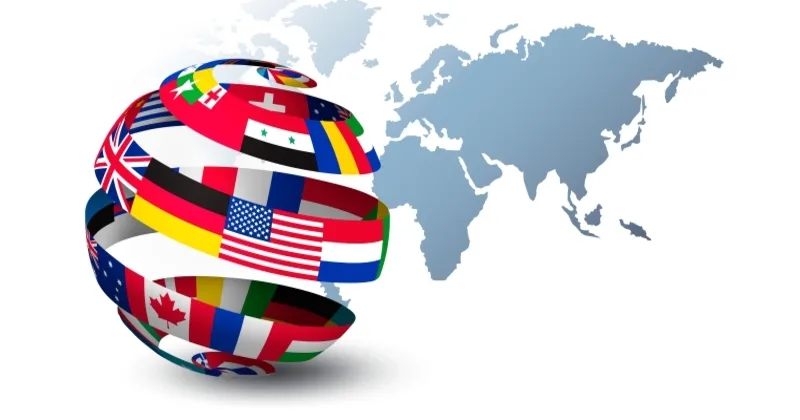World
Global Order Shifts as US Influence Wanes, China Emerges

As the world marks the 80th anniversary of the Allied victory in World War II, the celebratory parades in Beijing, Moscow, and Washington may suggest an air of continuity. However, beneath the surface, the global order established in the aftermath of the war is showing signs of significant strain. The system that once provided stability, largely anchored by the leadership of the United States and institutions such as the United Nations, is now in retreat, paving the way for a new struggle over legitimacy and influence, with China increasingly positioning itself as a global leader.
Shifts in Global Governance
The post-war era was characterized by a consensus around liberal democracy, open markets, and multilateralism under a framework often referred to as Pax Americana. For decades, this arrangement fostered security and economic prosperity among allies in Europe and Asia, facilitating the rise of globalization. Yet, the system had its contradictions, as evidenced by U.S. military interventions in Vietnam, Iraq, and Afghanistan, which often undermined its credibility. The 2008 financial crisis further exposed vulnerabilities in the U.S.-led economic order.
The presidency of Donald Trump marked a significant departure from previous U.S. foreign policy, accelerating the decline of this established order. His administration’s embrace of ultranationalism and skepticism towards multilateral institutions reframed the post-war system as a hindrance rather than a legacy. While some of Trump’s comments, including derogatory remarks about India and Russia, suggested a withdrawal from global engagement, his policies opened a door for alternative narratives in global governance.
China’s Ascendancy
In this shifting landscape, China has seized the opportunity to present itself as a champion of multilateralism and stability. President Xi Jinping has consistently advocated for the strengthening of the United Nations and has called for “inclusive economic globalization.” His rhetoric positions China as a responsible global stakeholder, contrasting with perceptions of U.S. assertiveness.
Xi’s message resonates particularly in the context of Trump’s foreign policy, which has alienated key nations within the Global South, including Brazil. At the recent Shanghai Cooperation Organisation summit, Xi emphasized a need to resist “hegemonism and power politics,” a clear critique of U.S. policies. This shift is not merely rhetorical; it reflects a growing economic reality where China has become the largest trading partner for over 100 countries.
While concerns regarding China’s assertiveness in regions like the South China Sea and its human rights record persist, many nations are increasingly weighing the benefits of engagement with Beijing against the unpredictability of U.S. policies. For these countries, the choice is not necessarily between endorsing authoritarianism or democracy, but rather about pursuing economic growth and strategic independence in a multipolar world.
The implications of these developments are profound. Trump’s approach has diminished America’s soft power and damaged its reputation as a global leader. By sidelining international institutions and withdrawing from key UN agencies, the administration has eroded the tools that once allowed the U.S. to shape global norms. This self-inflicted retreat has created a vacuum that China is eager to fill.
Critics within the U.S. foreign policy community are warning of serious repercussions. Former defense officials argue that dismantling the post-war order poses risks to global stability and undermines decades of diplomatic achievements. While many analysts do not predict an imminent crisis, there is a consensus that Trump’s policies are contributing to a shift towards a more fragmented and competitive international landscape.
As the geopolitical environment evolves, the United States faces a crucial decision. It can either continue down a path of isolationism, further ceding influence to rivals and alienating allies, or it can re-engage with the world, rebuild trust, and adapt its leadership to the realities of a multipolar age. The challenges of restoration are significant, but the consequences of withdrawal could be even more severe.
As discussions unfold at the United Nations General Assembly this month, the usual platitudes give way to a more substantive debate about the future. While the post-war consensus may be waning, the struggle for global leadership is just beginning.
-

 World5 months ago
World5 months agoSBI Announces QIP Floor Price at ₹811.05 Per Share
-

 Lifestyle5 months ago
Lifestyle5 months agoCept Unveils ₹3.1 Crore Urban Mobility Plan for Sustainable Growth
-

 Science4 months ago
Science4 months agoNew Blood Group Discovered in South Indian Woman at Rotary Centre
-

 World5 months ago
World5 months agoTorrential Rains Cause Flash Flooding in New York and New Jersey
-

 Top Stories5 months ago
Top Stories5 months agoKonkani Cultural Organisation to Host Pearl Jubilee in Abu Dhabi
-

 Sports4 months ago
Sports4 months agoBroad Advocates for Bowling Change Ahead of Final Test Against India
-

 Science5 months ago
Science5 months agoNothing Headphone 1 Review: A Bold Contender in Audio Design
-

 Top Stories5 months ago
Top Stories5 months agoAir India Crash Investigation Highlights Boeing Fuel Switch Concerns
-

 Business5 months ago
Business5 months agoIndian Stock Market Rebounds: Sensex and Nifty Rise After Four-Day Decline
-

 Sports4 months ago
Sports4 months agoCristian Totti Retires at 19: Pressure of Fame Takes Toll
-

 Politics5 months ago
Politics5 months agoAbandoned Doberman Finds New Home After Journey to Prague
-

 Top Stories5 months ago
Top Stories5 months agoPatna Bank Manager Abhishek Varun Found Dead in Well









